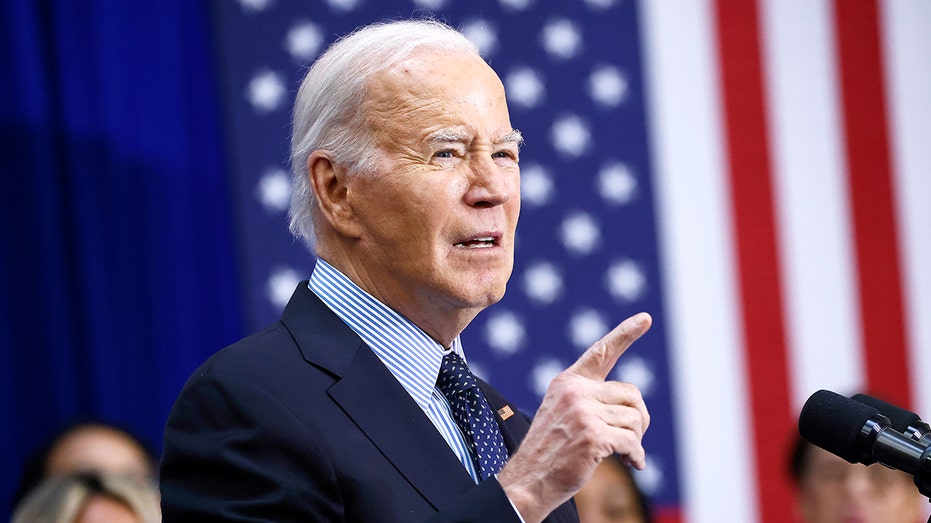This Wednesday marks the commencement of a highly anticipated Senate hearing aimed at delving into the intricacies of governance within President Joe Biden’s administration. The spotlight of this inquiry will focus on identifying who holds the real influence over the decision-making processes in the White House.
As concerns rise regarding the effectiveness of the current leadership, members of the Senate will question key figures from the Biden administration. They are looking to ascertain whether President Biden himself is in charge or if there are other individuals or factions steering the policy agenda.
The inquiry comes at a critical time, as the nation grapples with a myriad of pressing issues—ranging from economic recovery post-pandemic, international relations, and the ongoing debates surrounding climate change. With the midterm elections approaching, these discussions are not just an exercise in political accountability, but also a significant element in shaping voter perceptions.
Central to this hearing will be testimonies from various senior officials who either currently hold or have held significant roles in the Biden administration, including cabinet members and advisors. Their insights will provide a clearer understanding of the operational dynamics at play within the White House. Key figures expected to testify include the Chief of Staff, senior advisors, and possibly even cabinet members who directly interact with Biden on a daily basis.
The hearing has been sparked by increasing speculation and scrutiny regarding the President’s autonomy in policy-making. Critics argue that Biden’s age and recent mishaps in public appearances have raised questions about his cognitive abilities and overall leadership capabilities. This has led to theories suggesting that there are unseen hands orchestrating the administration’s actions.
Senators from both sides of the aisle will also seek to understand the hierarchy within the White House. They will explore how decisions are made and who ultimately has the final say in critical situations. This inquiry reflects a broader concern among legislators and citizens alike regarding transparency and accountability in government.
The role of Vice President Kamala Harris is also anticipated to be a focal point during the proceedings, as many wonder how her influence intertwines with Biden’s leadership. Her presence as the first female Vice President and first woman of South Asian and African American descent has been celebrated but scrutinized equally, leading to discussions about her level of authority in comparison to previous Vice Presidents.
The unfolding of these proceedings is expected to garner significant media attention as well as public interest. The partisan divide remains a contentious issue, with Democrats likely defending the administration’s decisions and the general operational framework, while Republicans may emphasize their concerns about Biden’s qualifications and the apparent lack of robust leadership.
Additionally, the public will be closely watching the manner in which the hearings are conducted. Transparency in government operations has become a rallying cry for many citizens who hope to see a reduction in what they perceive as a “deep state” influence over elected officials. These hearings come at a time when trust in government institutions has hit a low, and many Americans are anxious to see whether their concerns will be addressed substantively.
The consequences of the hearing may extend beyond mere accountability. Should the findings reveal a lack of control or chaos within the White House, it could significantly impact the Biden administration’s credibility. This might also set the stage for potential challenges in the upcoming elections, as it could give opponents talking points to criticize Biden’s leadership effectiveness.
Furthermore, political analysts are observing to see how these proceedings will interlace with the political landscape, especially in the context of the 2024 presidential election. Many prospective candidates are analyzing these developments as they prepare their platforms and campaign messages.
Anticipation around the hearing reflects a society eager for clarity. Recent historical examples in both Republican and Democratic administrations show that perceived weaknesses in leadership can lead to significant shifts in polling and public opinion. Observers note that the hearings might also shed light on policy decisions tied to foreign affairs, infrastructure, and social issues that have been hotly debated in recent months.
In summary, the commencement of this Senate hearing represents a pivotal moment in the ongoing dialogue about governance style and leadership transparency within the Biden administration. As the proceedings unfold, they promise to uncover insights that will resonate far beyond the walls of the Senate chambers, impacting both the political landscape and public trust in the executive branch.
While it remains to be seen what the testimony and findings will reveal, the significance of this inquiry should not be underestimated. Citizens and lawmakers alike are hopeful for a clearer understanding of the driving forces behind executive decision-making and the implications this has for the future of American governance.
































